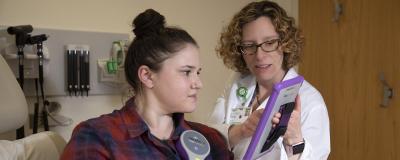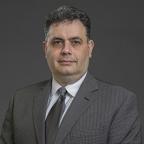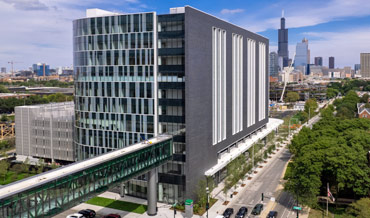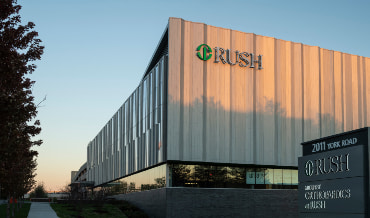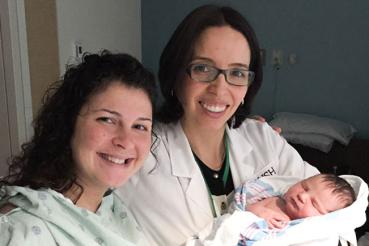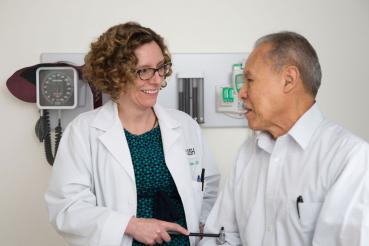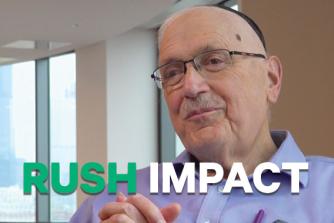The Rush Approach to Epilepsy Treatment
At Rush, we provide a comprehensive evaluation of your seizures and overall situation. We want to understand the effect seizures have on you and your family.
We then work as a team to recommend potential solutions to best fit your lifestyle and needs, whether that’s medication or epilepsy surgery. Our team includes epileptologists, neurosurgeons, neuropsychologists and social workers, all with epilepsy expertise.
As a level 4 National Association of Epilepsy Centers epilepsy center, Rush University Medical Center meets the highest standards for seizure diagnosis and care. We specialize in treating seizures that do not respond to medication (or, intractable epilepsy). For instance, the advanced monitoring capabilities at our state-of-the-art EEG Laboratory enable us to both identify the seizure focus and perform epilepsy surgery more precisely — so you get better results.
While our level 4 center is in Chicago, we work across the Rush system to meet patients where they are. Through telemedicine visits and locations in the western suburbs, our goal is to help you find relief from seizures as quickly — and as conveniently — as possible.
Rush Excellence in Epilepsy Treatment
- Volume and expertise: Our team sees more than 5,000 patients a year, including adults and children. We have epileptologists who specialize in treating only adult epilepsy, those who treat only pediatric epilepsy and some who treat both. This high volume means we can draw lessons from literally thousands of patients living with seizures to find a solution that works for you.
- Nationally ranked excellence: The Rush University Medical Center neurology and neurosurgery programs are ranked among the best in the nation by U.S. News & World Report. Rush epileptologists and neurosurgeons work closely with neurologists at Rush Copley Medical Center and Rush Oak Park Hospital to provide you with comprehensive seizure care in the western suburbs.
- Intractable epilepsy focus: If you have not responded to at least two anti-epilepsy drugs (in the right dose, with the right medication selection), you are less likely to respond to additional drugs. Because our team specializes in intractable epilepsy, we can suggest alternative options when other epilepsy treatments have not worked.
- Epilepsy diagnosis and finding seizure focus: Getting relief for intractable epilepsy starts with finding your seizure focus, the place in your brain where your seizures are coming from. To do this, we have many options, including continuous EEG, high density EEG, intracranial EEG, stereotactic EEG and SISCOM analysis — all offered through Rush University Medical Center’s EEG Laboratory, the largest and busiest EEG facility in the Chicago area. When we are unable to clearly see a brain lesion during conventional imaging (to identify a seizure focus and see if you qualify for surgery), our team uses specialized imaging analysis like measuring cortical thickness, voxal based morphometry and hippocampal volume measures to locate where a lesion is most likely to exist. In addition to pinpointing the source of seizures, EEG monitoring helps our team evaluate patients for and plan epilepsy surgery.
- Epilepsy surgery options: Rush neurosurgeons perform epilepsy surgery and procedures that are not widely available, including asleep deep brain stimulation. We also offer laser interstitial thermal therapy (LITT, also known as thermal ablation). And, our focal resection surgeries use advanced imaging to better identify seizure focus.
- Medication selection: Finding the right medication for epilepsy takes expertise. When we recommend a medication, we look at your lifestyle, medical history and overall health. That's because anti-epilepsy drugs can affect other health issues, such as migraines, weight loss or weight gain, birth control effectiveness and more.
- Specialized care for non-epileptic seizures: Many people with intractable epilepsy are actually experiencing non-epileptic seizures, or NES. That’s why we created the NEST (non-epileptic seizure treatment) Clinic. Here, a team of psychiatrists, neurologists, seizure specialists, psychologists and clinical social workers collaborate to determine the nature of the disorder and address the multiple factors that contribute to this condition. Our goal: to reduce seizure frequency and severity, improve your mental health and enable you to enjoy life to the fullest.
- Helping you have a better quality of life: At Rush, we look beyond seizure control, helping our patients address the psychological and emotional issues — including depression and anxiety — that are often associated with epilepsy. Our clinic team includes a psychiatrist and social worker who specialize in working with people with epilepsy and their families.
- Focus on epilepsy in women: When it comes to epilepsy, girls and women have many concerns that boys and men don’t. This includes the impact some anti-seizure drugs can have on your reproductive hormones; how anti-seizure drugs and oral contraceptives can each make the other less effective; and how some women have seizures that increase with their menstrual cycle (catamenial epilepsy). Our epilepsy team understands and takes these issues into account when developing your treatment plan, and we work with you to make adjustments, as needed, throughout your life.
- Fostering healthy pregnancies: If you want children and are ready to start your family, our team will make sure you understand the challenges you may face — and come up with a plan to address them. If you’re having trouble conceiving, we’ll partner with your reproductive endocrinologist to regulate your medications so you can safely undergo fertility treatments. We also aim to help you have a seizure-free pregnancy and safe delivery by tightly coordinating your epilepsy care with your obstetric care.
- Comprehensive epilepsy care for older adults: Our downtown Chicago location has the first clinic in the Midwest for older adults with epilepsy. The clinic uses a team approach, including a dedicated social worker, pharmacist and epileptologist. The clinic works closely with the geriatrics, stroke, memory, psychiatry and movement disorder services at Rush.
- Dietary therapy for seizures: At Rush University Medical Center, we offer a dietary therapy clinic for adults to help you control seizures. A registered dietitian and epileptologist cover what you need to know about following the keto diet, low glycemic index diet or modified Atkins diet. They tailor your diet plan based on the type of epilepsy and seizures you have, seizure frequency and your medical history, family support and nutritional needs.

